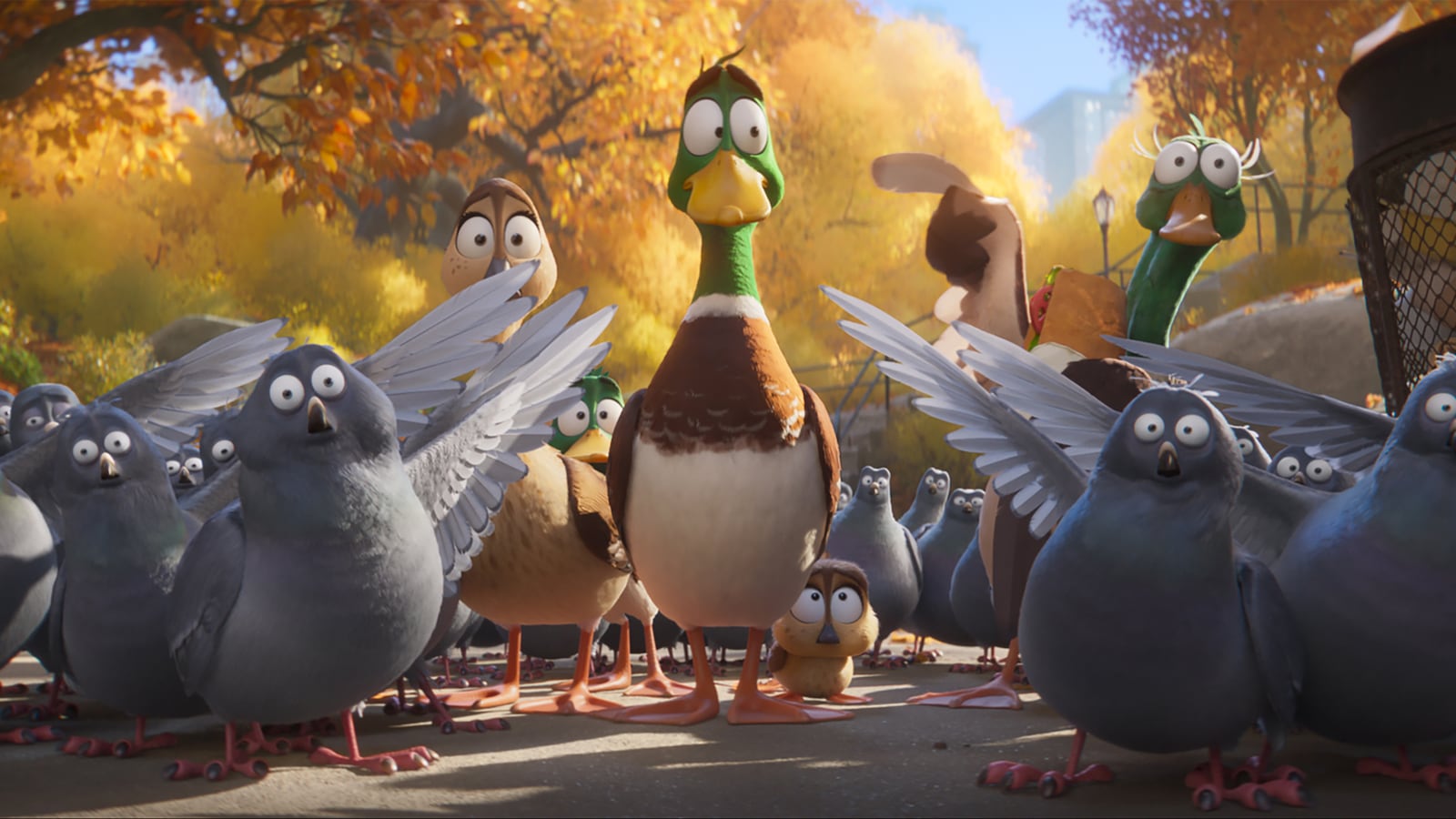What does Illumination, one of the past decade’s most financially lucrative producers of big-studio animation, do when left to its own devices? The company’s last six features have all either been sequels or adaptations of already-famous characters, and the super-smash success of The Super Mario Bros. Movie from earlier this year assures that this will continue to be a part of the business plan. (Coming next summer: Despicable Me 4.) Migration (in theaters Dec. 22) breaks from that pattern, but only sort of: It’s a complete Illumination original, which in this context means that it shamelessly knocks off a Pixar movie.
The movie in question is Finding Nemo, to which Illumination appends their own form of Pixar’s fabled “plussing” style of feedback by removing key elements: What if Nemo’s mom didn’t die, and then he didn’t get separated from his family, and they all got lost together, and they were only really in mortal danger for five or 10 minutes? (Maybe Illumination can internally brand it “minusing:” less story, less effort!) You might say that plot description doesn’t sound much like Finding Nemo at all, and it is admittedly kind of amazing how Migration is able to retain the soul of a ripoff even as it jettisons many of the signature elements of the film it’s ripping off.
The connection to Nemo is Mack Mallard (Kumail Nanjiani), the nervous patriarch of a duck family, and his eagerness to keep his children, Dax (Caspar Jennings) and Gwen (Tresi Gazal), safe from any and all dangers of the world outside their pond. But the kids’ mom, Pam (Elizabeth Banks), yearns for a change, so when she meets another flock making its way to Jamaica for the winter, she convinces Mack to embark upon the same trip despite their lack of navigational know-how. (How a family of ducks has apparently managed to avoid the concept of migration for this many years is not entirely explained.)
The ensuing adventures send Mack way outside of his comfort zone, and Illumination back into its own, at least for the section where the ducks accidentally wind up in New York City—repeatedly seen in the studio’s Secret Life of Pets series—and meet a swarm of pigeons who stare at our heroes with a glassy, unnerving vacancy, much like the seagulls in Finding Nemo. The movie branches out by giving the pigeons a chatty leader called Chump (Awkwafina, possibly collecting stones for some kind of voice-acting Infinity Gauntlet, judging by her work for Disney, DreamWorks, Nickelodeon, Sony, and now Illumination). It later branches back in by introducing a Nemo-like physical hindrance to Dax’s flight, sending Mack further into the overprotective anxiety that he must learn to overcome. The movie assures its young audience that the lessons their parents require will come smoothly and easily.

Look, not every single minute of Migration is spent sanitizing a G-rated classic for even-younger kids. There’s actually a pleasantly episodic rhythm—if very little urgency—to the Mallard family’s journey, including some uncommonly graceful touches for an Illumination cartoon. The ducks’ winged approach into the foggy New York skyline has an eerie beauty, which gives way to a neat continuous shot of the birds zipping unexpectedly through traffic, tunnels, and crowds. And for a studio that always keeps its characters yammering, the decision to leave Migration’s human characters wordless is a lightly Aardman-esque blessing, possibly courtesy of credited screenwriter Mike White. (No worries, though, that kid viewers won’t absorb their allotment of bad animation clichés: The younger characters still exclaim “This is awesome!” in between no fewer than three moments of belabored slow-motion slapstick, on the way to a dance-party ending.)

As a kiddie diversion, Migration is more tolerable than Illumination at their Sing-level smarmiest. It’s also, in its own mild way, a little chilling. Illumination may not command the same level of budgetary resources as Disney or Pixar (it’s why the studio’s movies don’t look as good and are often vastly more profitable), but the filmmakers do have plenty of time, money, and clout to bring to life whatever adventures pop into their minds. The forgettable cuteness of Migration suggests that printing money via IP machines may not merely be a financial obligation. It might be Illuminaton’s passion, too.






